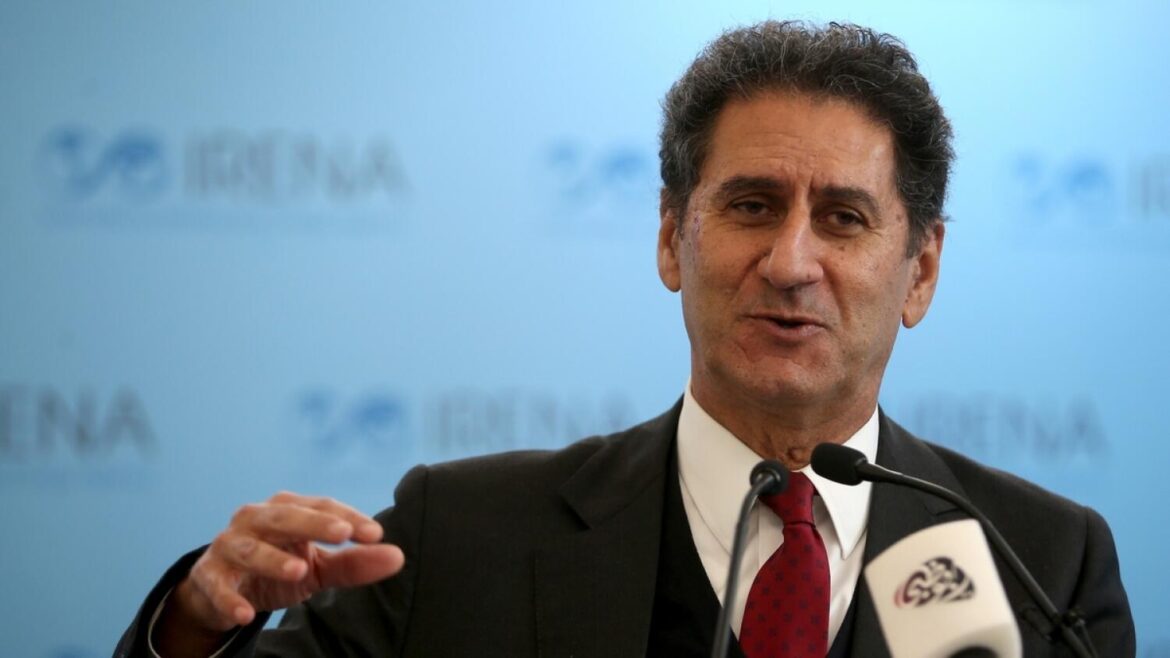The Paris Agreement highlights a concerning deviation from the goal of limiting the global temperature increase to 1.5ºC. The impacts are widespread, affecting vulnerable regions the hardest.
Francesco La Camera, Director-General of the International Renewable Energy Agency (IRENA), emphasised the pressing need for action. In an interview with Khaleej Times, La Camera highlighted that the world lags behind the target of tripling renewable energy by 2030. He identified the speed of implementing renewable projects as a critical factor in meeting the 1.5ºC goal by 2030.
La Camera pinpointed last year’s surge in fossil fuel subsidies as a disruptive force that hindered the pace of renewable energy initiatives. He advocated redirecting these subsidies towards the promotion of renewables.
The UAE stands out as a symbol of commitment to climate change by becoming the first country in the Gulf region to eliminate oil subsidies. This move underscores the global imperative to prioritise sustainable energy solutions in the face of climate challenges. The UAE has met its domestic target of tripling renewable energy and set the stage for achieving COP28’s objective of tripling renewable energy by 2030. Francesco La Camera reiterated, “The UAE is leading COP by example.”
Addressing concerns about the notion that the economically affluent UAE might not face challenges with climate financing, La Camera emphasised the need to redefine international cooperation.
He said, “We must rewrite how international cooperation works and make rich and developing countries collaborate. I appreciate the UAE’s efforts to support other nations. They are investing in renewables in more than 70 countries, with Masdar engaged in 44 countries. This investment approach to renewables is a model we should adopt globally. Each country should contribute according to its capacity, and if the UAE can do more, they are willing to do more.”
IRENA projects that a substantial investment of $110 trillion in renewable energy is imperative by 2050 to align with the goals of the Paris Agreement. La Camera stressed that more than relying on the resources of the multilateral financial system is required. He urged on the need to establish policies aimed at attracting private capital. Furthermore, La Camera underscored the importance of leveraging global financial assets to facilitate investments in developing countries. This approach is essential to mobilise the significant financial commitments required for a sustainable energy transition per the Paris Agreement objectives.
During the COP15 in Copenhagen in 2009, developed countries pledged to mobilise $100 billion annually by 2020 for climate action in developing nations, contingent on meaningful mitigation efforts and transparent implementation. However, this commitment still needs to be met, with a postponement to 2025 occurring during COP21. Climate financing, integral to mitigating temperature rise risks, supports transitioning to a low-carbon, climate-resilient global economy. Francesco La Camera said that the UAE is actively working to ensure this commitment is fulfilled before the launch of COP28.
When asked about the UAE’s efforts on climate change and its foresight on the importance of this issue, La Camera responded, “The UAE boasts the world’s largest solar plant, a strategy for hydrogen, and a commitment to net zero. These initiatives demonstrate the country’s deep engagement in its domestic pathway. Moreover, the UAE plays a crucial role in shaping COP28.”
La Camera concluded by wishing for the success of the COP28 summit, recognising the UAE’s significant contributions to addressing climate challenges on both domestic and global fronts.
UAE’s investment approach to renewables is a model to adopt globally: Irena chief
274
previous post


